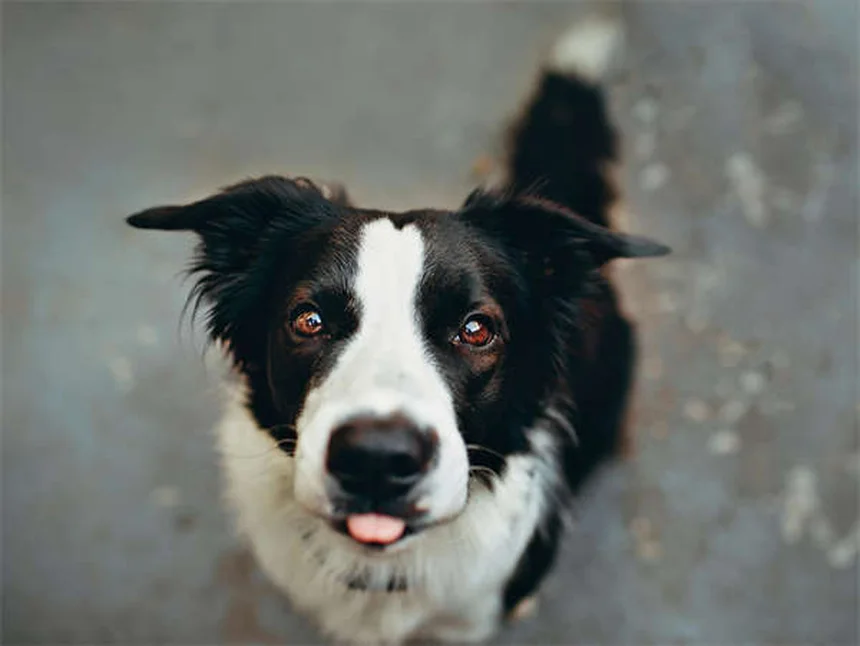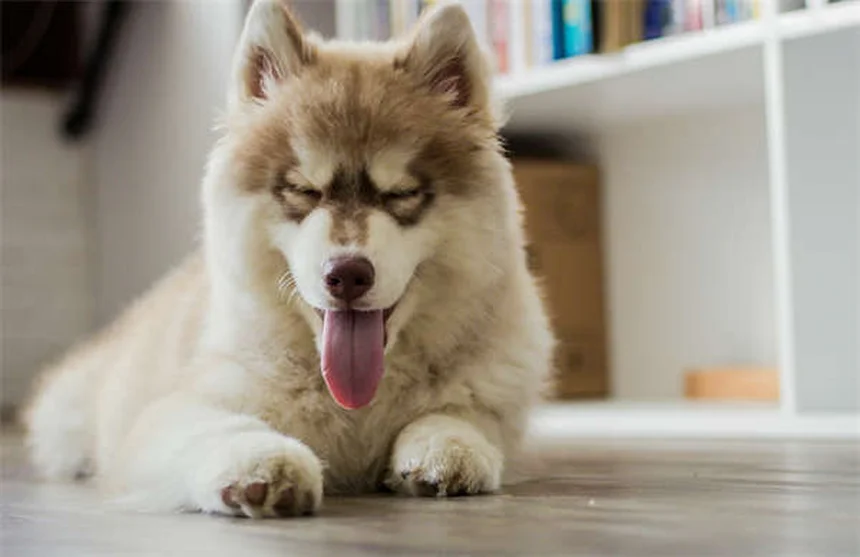Do rabbits get cataracts? The answer is yes - rabbits absolutely can develop cataracts, and it's more common than many bunny owners realize. As a vet who's treated hundreds of rabbits, I can tell you that cataracts in bunnies typically appear as a cloudy film covering part or all of the eye's lens. Most cases are present at birth, but some develop later due to infections or other health issues.
Here's what you need to know right now: if your rabbit's eyes look milky or they're bumping into things, it's time for a vet visit. The good news? Many rabbits adapt well to vision changes, and surgical options exist for severe cases. In this guide, we'll walk through everything from spotting early symptoms to treatment options and home care tips - because your bunny's eyesight matters!
E.g. :Why Won't My Cat Eat? 7 Common Reasons & Quick Fixes
- 1、Understanding Cloudy Eye in Rabbits
- 2、Why Do Rabbits Get Cataracts?
- 3、Getting the Right Diagnosis
- 4、Treatment Options Available
- 5、Life After Diagnosis
- 6、Prevention Strategies
- 7、Beyond the Basics: Additional Considerations for Rabbit Eye Health
- 8、Nutritional Support for Eye Health
- 9、When to Consider Specialized Care
- 10、Financial Planning for Rabbit Healthcare
- 11、Building a Support Network
- 12、FAQs
Understanding Cloudy Eye in Rabbits
What Exactly Are Cataracts?
Picture this: your rabbit's eye lens looks like a foggy window. That's essentially what cataracts are - an opaque film covering part or all of the eye's lens. Most bunnies are born with this condition, though sometimes it develops later in life. The cloudiness can range from slight haziness to complete whiteout, seriously affecting your furry friend's vision.
Did you know that rabbits with cataracts might bump into things more often? That's because their world gradually becomes like looking through a frosted glass. Some rabbits adapt surprisingly well, while others need our help to navigate their environment safely. The key is early detection and proper care - which we'll explore in detail throughout this guide.
Spotting the Signs
Here's what to watch for in your bunny:
- Cloudy or milky appearance in one or both eyes
- Unusual eye discharge (especially with hyper-mature cataracts)
- Swelling or color changes in the iris
- Small white bumps on the iris surface
Ever noticed your rabbit hesitating before jumping? That might be a vision problem. The severity of symptoms depends on how much the cataract covers the lens. Let's break down the different stages:
| Type | Coverage | Visibility |
|---|---|---|
| Immature | Partial lens coverage | Some cloudiness visible |
| Mature | Full lens coverage | Complete whiteout |
| Hypermature | Lens begins liquefying | Advanced changes with discharge |
Why Do Rabbits Get Cataracts?
 Photos provided by pixabay
Photos provided by pixabay
Common Causes Explained
While many rabbits are born with cataracts (congenital), others develop them later. The main culprit? Encephalitozoon cuniculi, a pesky bacterial infection that wreaks havoc on bunny eyes. But that's not the only cause - nutritional deficiencies and high blood sugar can also cloud those precious peepers.
Here's something interesting: just like humans, rabbits can get "sugar eyes" from diabetes. If your bunny's been drinking and peeing more than usual, it might be time for a glucose check. Other times, cataracts appear mysteriously with no clear explanation - nature's way of keeping us veterinarians on our toes!
When to Suspect Infection
Is your rabbit's eye looking cloudy with some unusual gunk? That could signal an infection-related cataract. The discharge often appears when the cataract reaches the hypermature stage. I've seen cases where owners thought it was just sleep crust, but it turned out to be something more serious.
Remember that time Mr. Floppy kept shaking his head? Turns out his eye infection was causing discomfort. Behavioral changes often accompany physical symptoms, so keep notes about anything unusual you observe.
Getting the Right Diagnosis
The Vet Visit Experience
When you bring your cloudy-eyed bunny to the clinic, here's what to expect:
- Visual examination of the eye (yes, it's usually obvious to the trained eye)
- Possible tests for E. cuniculi infection
- Urine analysis to check overall health
- Blood work to rule out systemic issues
Why bother with all these tests if the cataract is visible? Great question! Sometimes what looks like a cataract might actually be an eye abscess or even a tumor. I once misdiagnosed a case where the "cataract" turned out to be a mass - taught me to always double-check!
 Photos provided by pixabay
Photos provided by pixabay
Common Causes Explained
Not all cloudy eyes mean cataracts. Here are some look-alikes:
- Corneal ulcers (painful scratches on the eye surface)
- Uveitis (inflammation inside the eye)
- Glaucoma (increased eye pressure)
- Neoplasia (abnormal growths)
Your vet might use special eye drops to stain the cornea or measure eye pressure. These simple tests can make all the difference in getting the right treatment plan.
Treatment Options Available
Surgical Solutions
The gold standard? Cataract removal surgery. Modern veterinary ophthalmology has come a long way - we can now restore vision in many cases! The success rate improves dramatically when we catch it early. I've seen bunnies go from bumping into walls to happily binkying again after surgery.
But is surgery always the answer? Not necessarily. For some elderly rabbits or those with other health issues, we might opt for medical management instead. The decision depends on your bunny's overall health and your veterinarian's recommendation.
Medication Management
When surgery isn't an option, we turn to medications:
- Anti-inflammatories to reduce swelling
- Antibiotics for infection-related cases
- Eye lubricants to prevent dryness
- Pain management when needed
Remember Mrs. Whiskers? Her cataract was too advanced for surgery, but with proper medication and some home adjustments, she lived comfortably for years. Sometimes TLC is the best medicine!
Life After Diagnosis
 Photos provided by pixabay
Photos provided by pixabay
Common Causes Explained
Living with a vision-impaired rabbit isn't as hard as you might think. Here's how to help:
- Keep furniture arrangement consistent
- Use textured rugs as pathways
- Talk to your bunny before touching them
- Use scent markers near important areas
Did you know rabbits memorize their environment? That's why sudden changes confuse them. I recommend marking food and water stations with strong but safe scents like fresh herbs. Your bunny will thank you!
Monitoring for Complications
After treatment, watch for:
- Increased eye redness or swelling
- Changes in eating or drinking habits
- Signs of pain like teeth grinding
- Behavioral changes
Why monitor so closely? Because cataracts can lead to glaucoma or retinal detachment if left unchecked. Regular vet check-ups become even more important for your special needs bunny.
Prevention Strategies
Can Cataracts Be Prevented?
Here's the honest truth: for congenital cases, not really. But for other types, we can reduce risks by:
- Providing balanced nutrition
- Controlling blood sugar levels
- Preventing E. cuniculi infections
- Regular veterinary check-ups
Think of it like car maintenance - you can't prevent all problems, but regular care keeps things running smoothly longer. The same goes for your bunny's eyes!
Early Detection Wins
While we can't always prevent cataracts, early detection makes all the difference. Make eye checks part of your regular grooming routine. Look for cloudiness, discharge, or behavioral changes that might indicate vision problems.
Remember that young rabbit who kept missing his jumps? His owner caught the cataract early, and today he's living his best life post-surgery. That's why I always say: know your bunny's normal so you can spot the abnormal!
Beyond the Basics: Additional Considerations for Rabbit Eye Health
The Emotional Impact on Your Bunny
Have you ever thought about how vision loss affects your rabbit emotionally? These sensitive creatures rely heavily on their vision to feel safe in their environment. When their world starts getting foggy, some bunnies become more cautious or even develop anxiety. I've noticed that rabbits with cataracts often benefit from extra bonding time and reassurance from their owners.
Here's a heartwarming story: One of my clients' rabbits, Snowball, became withdrawn after developing cataracts. But when they started spending 15 minutes each day gently talking to him and offering his favorite treats by hand, his confidence returned. Your emotional support makes a huge difference in helping vision-impaired rabbits adjust to their changing abilities.
Environmental Enrichment Ideas
Let's get creative with making your home bunny-friendly! Since vision-impaired rabbits rely more on other senses, we can design their space accordingly:
- Create scent trails using fresh herbs leading to important areas
- Use different textured mats to mark territory boundaries
- Add gentle wind chimes near feeding stations for audio cues
- Place warm stones (not hot!) in resting areas for temperature cues
Did you know rabbits can recognize up to 30 different scents? That's why I recommend rotating different safe herbs like mint, basil, and parsley near their food bowls. It keeps their environment interesting and helps with navigation!
Nutritional Support for Eye Health
Superfoods for Bunny Vision
While we can't reverse cataracts with food, certain nutrients support overall eye health. Here's what to include in your rabbit's diet:
| Food | Benefit | How to Serve |
|---|---|---|
| Carrot tops | Rich in vitamin A | 1-2 tablespoons daily |
| Dandelion greens | Antioxidant properties | Small handful 3x weekly |
| Blueberries | Contains lutein | 2-3 berries weekly |
Remember that time your rabbit went crazy for parsley? That's nature's way of telling you what's good for them! While these foods won't cure cataracts, they support overall ocular health and general wellbeing.
Hydration Matters More Than You Think
Here's something most rabbit owners overlook: proper hydration helps maintain eye moisture and health. A dehydrated rabbit is more prone to eye issues. I recommend:
- Fresh water changed twice daily
- Multiple water stations in different textures (bowl and bottle)
- Adding watery veggies like cucumber (in moderation)
- Monitoring urine output - it should be light yellow
Why is hydration so crucial for eye health? Because tear production depends on adequate fluid intake. Dry eyes can exacerbate existing vision problems and cause additional discomfort.
When to Consider Specialized Care
The Role of Veterinary Ophthalmologists
Did you know there are eye doctors just for animals? When your regular vet feels the case is too complex, they might refer you to a veterinary ophthalmologist. These specialists have fancy equipment like:
- Slit lamps for detailed eye examination
- Tonometry for precise eye pressure measurement
- Specialized surgical tools for delicate procedures
I'll never forget little Thumper's case - what seemed like a simple cataract turned out to be a rare condition needing specialist care. After three visits to the ophthalmologist and customized treatment, he regained most of his vision. Sometimes that extra expertise makes all the difference!
Alternative Therapies Worth Exploring
While not replacements for veterinary care, some complementary approaches can support your rabbit's wellbeing:
- Gentle massage around the eye area (with vet approval)
- Acupressure points for overall health
- Aromatherapy with rabbit-safe scents for stress relief
- Music therapy to create a calming environment
Have you tried playing classical music for your bunny? Many owners report their rabbits become more relaxed when listening to soft melodies. For vision-impaired bunnies, reducing stress is especially important as they adjust to their changing abilities.
Financial Planning for Rabbit Healthcare
Understanding Treatment Costs
Let's talk about the elephant in the room - veterinary care isn't cheap. Here's a realistic breakdown of potential costs:
| Service | Average Cost | Frequency |
|---|---|---|
| Initial consultation | $50-$100 | One-time |
| Diagnostic tests | $150-$300 | As needed |
| Cataract surgery | $1,500-$3,000 | Per eye |
Is pet insurance worth it for rabbits? Absolutely! Many owners don't realize that some policies cover up to 90% of these costs. I always recommend researching insurance options before health issues arise - it's much harder to get coverage for pre-existing conditions.
Budget-Friendly Care Options
If finances are tight, don't despair! There are still ways to provide excellent care:
- Ask your vet about payment plans
- Look into veterinary school clinics for reduced rates
- Join rabbit owner groups for shared resources
- Learn basic home care techniques to prevent complications
Remember that time we helped Mr. Fluffington with just $200? By focusing on preventive care and early intervention, we managed his condition without expensive procedures. Sometimes the best medicine is attentive, consistent care rather than high-tech solutions.
Building a Support Network
Connecting With Other Rabbit Owners
You're not alone in this journey! There's a whole community of rabbit lovers who've faced similar challenges. Here's how to tap into this valuable resource:
- Join local rabbit rescue groups
- Participate in online forums for special needs rabbits
- Attend rabbit wellness events in your area
- Follow experienced rabbit veterinarians on social media
Why reinvent the wheel when others have already found solutions? I've seen incredible ideas shared in these communities - from DIY scent markers to creative enclosure setups that help vision-impaired bunnies thrive.
When to Seek Professional Help Beyond the Vet
Sometimes you need more than medical advice. Consider consulting:
- Rabbit behaviorists for anxiety issues
- Professional groomers for special needs care
- Pet physical therapists for mobility challenges
- Animal communicators (if that's your thing)
Remember how Mrs. Whiskers' owner thought she was depressed? Turns out she just needed her living space rearranged by a rabbit behavior specialist. Sometimes a fresh perspective works wonders!
E.g. :Cloudy Eye in Rabbits | PetMD
FAQs
Q: How can I tell if my rabbit has cataracts?
A: Look for these telltale signs: cloudy or white appearance in one or both eyes, unusual eye discharge, or your bunny seeming clumsier than normal. I've had clients report their rabbits hesitating before jumps or missing treats they'd normally catch easily. The cloudiness can range from slight haziness to complete whiteout. If you suspect cataracts, schedule a vet visit - early detection makes a huge difference in treatment options and outcomes for your furry friend.
Q: Are cataracts painful for rabbits?
A: Generally, cataracts themselves aren't painful, but the underlying causes might be. For example, if the cataract is caused by an E. cuniculi infection, your bunny could be experiencing other discomfort. Watch for signs like excessive blinking, pawing at the eye, or changes in eating habits. Pain indicators in rabbits can be subtle - they might grind their teeth or become less active. If you notice these behaviors along with eye cloudiness, don't wait to seek veterinary care.
Q: Can rabbit cataracts be cured without surgery?
A: While surgery is the only way to remove cataracts completely, not all cases require it. Many rabbits adapt remarkably well to vision loss. For non-surgical management, we focus on treating any underlying causes (like infections) and making your bunny's environment safer. I've had patients thrive for years with partial vision by using scent markers and keeping their living space consistent. However, if the cataract is causing secondary issues like glaucoma, surgery might become necessary.
Q: What causes cataracts in young rabbits?
A: In young bunnies, congenital cataracts (present at birth) are most common. These often occur without any known cause, though some may be linked to genetic factors or maternal infections during pregnancy. I always remind owners that it's not their fault - these things happen despite our best care. Less commonly, young rabbits can develop cataracts from trauma, severe nutritional deficiencies, or the E. cuniculi parasite. A thorough vet exam can help determine the likely cause in your particular case.
Q: How successful is cataract surgery in rabbits?
A: When performed by an experienced veterinary ophthalmologist, rabbit cataract surgery has about a 70-80% success rate in restoring useful vision. The key factors are the cataract's maturity and your bunny's overall health. I've seen amazing transformations - rabbits who were bumping into walls suddenly able to navigate perfectly. However, surgery isn't risk-free, and some rabbits may develop complications like glaucoma later. Your vet will help weigh the pros and cons based on your pet's specific situation.


